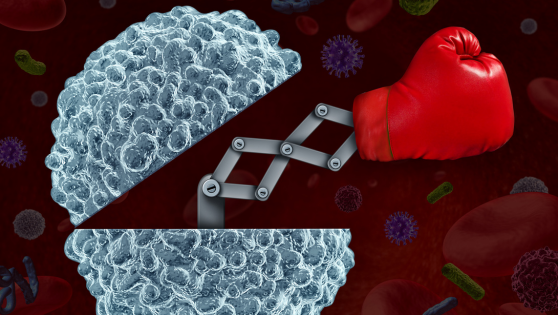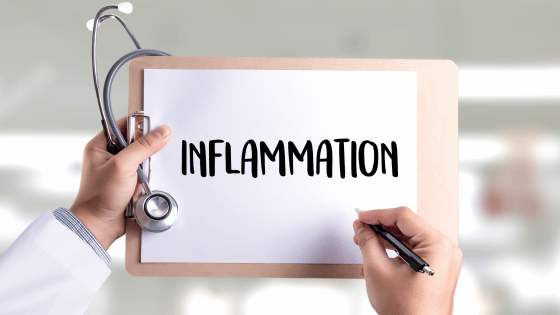Introduction
Are you constantly feeling exhausted, struggling to get through the day despite getting a full night’s sleep? You might be one of the many individuals experiencing the symptoms of adrenal fatigue.
In today’s fast-paced world, many of us experience chronic stress, poor diet, and lack of sleep, leading to a condition known as adrenal fatigue. Adrenal fatigue occurs when the adrenal glands, which produce essential hormones like cortisol, become overworked and unable to function properly. This can result in a wide range of symptoms, including chronic tiredness, muscle weakness, brain fog, and mood swings.
One significant aspect of adrenal fatigue is its connection to autoimmune disease. Autoimmune disease occurs when the immune system mistakenly attacks the body’s own tissues, leading to inflammation and various health problems. Adrenal fatigue can exacerbate autoimmune symptoms by increasing stress and inflammation, making it harder for the body to manage these conditions. Conversely, individuals with autoimmune disease may be more susceptible to adrenal fatigue due to the constant strain on their immune systems.
By understanding the link between adrenal fatigue and autoimmune diseases, we can take proactive steps to support our adrenal health and improve our overall quality of life. In this blog, we’ll explore the causes, symptoms, and natural remedies for adrenal fatigue, as well as provide adrenal cocktail recipes to help you restore balance and vitality.
The Role of Adrenal Glands
Your adrenal glands play a crucial role in maintaining overall health. Despite their small size, comparable to that of a coin, they sit above your kidneys and beneath the muscle tissue of your lower back. These glands are responsible for secreting more than 50 different hormones essential for life, including adrenaline, cortisol, progesterone, and testosterone. They regulate inflammation, immune function, blood sugar levels, and electrolyte balance, influencing nearly every physiological process in the body.
Proper adrenal function is vital for producing energy, balancing electrolytes, and managing stress. When you encounter stress, the adrenal glands trigger various responses to help you cope. However, during periods of intense, prolonged stress or chronic illness, these glands can become overworked, leading to diminished function—a state known as adrenal fatigue.
Symptoms of Adrenal Fatigue
Adrenal fatigue can manifest in a variety of ways, affecting physical, emotional, and cognitive health. Recognizing these symptoms is crucial for early detection and management of this condition. Here are 12 common symptoms of adrenal fatigue:
Physical Symptoms
- Chronic Fatigue: Persistent tiredness that doesn’t improve with rest.
- Muscle Weakness: Reduced muscle strength and endurance.
- Body Aches: Generalized pain or soreness in muscles and joints.
- Low Blood Pressure: Feeling lightheaded or dizzy, especially when standing up quickly.
- Salt Cravings: An unusual desire for salty foods.
- Weakened Immune System: Increased susceptibility to infections and slower recovery from illnesses.
Emotional Symptoms
- Anxiety: Feeling constantly nervous, worried, or on edge.
- Depression: Persistent feelings of sadness, hopelessness, or lack of interest in activities.
- Irritability: Becoming easily frustrated or angered over minor issues.
- Mood Swings: Experiencing rapid changes in mood without an obvious cause.
Cognitive Symptoms
- Brain Fog: Difficulty thinking clearly, mental fatigue, and sluggishness.
- Difficulty Concentrating: Trouble focusing on tasks, easily distracted, and poor memory retention.
These symptoms can significantly disrupt daily life, making even the simplest routine activities feel overwhelming. Chronic fatigue may leave you struggling to get out of bed in the morning, while muscle weakness can make physical tasks exhausting. Emotional symptoms like anxiety and depression can cloud your mental clarity and rob you of joy, making it hard to stay motivated or engage in social activities. Cognitive issues such as brain fog and difficulty concentrating can hinder your performance at work or school, leading to frustration and decreased productivity. Managing these symptoms is essential not just for physical health, but for maintaining a balanced, fulfilling lifestyle.
Alarm Reaction vs. Resistance vs. Fatigue in Adrenal Fatigue
Understanding the stages of stress response is crucial when explaining adrenal fatigue. These stages are often described in three phases: Alarm Reaction, Resistance, and Fatigue. Here’s a breakdown of each phase:
Alarm Reaction
- Description: The Alarm Reaction is the body’s immediate response to a perceived threat or stressor. This is also known as the “fight-or-flight” response.
- Physiological Response: During this phase, the adrenal glands release a surge of hormones, including adrenaline and cortisol. These hormones prepare the body to either confront or flee from the stressor.
- Symptoms: Increased heart rate, heightened alertness, rapid breathing, and a burst of energy. This is a short-term response designed to handle immediate threats.
Resistance
- Description: If the stressor persists, the body moves into the Resistance phase. Here, the body attempts to adapt to the ongoing stress.
- Physiological Response: The adrenal glands continue to produce cortisol, but at a sustained, moderate level. The body remains on high alert, trying to cope with the stressor.
- Symptoms: Sustained energy, less intense but prolonged physical and mental alertness, and a general state of tension. Over time, the body’s resources begin to deplete as it continues to deal with the stress.
Fatigue (Exhaustion)
- Description: When the stress continues for a long period, and the body can no longer maintain the resistance stage, it enters the Fatigue or Exhaustion phase.
- Physiological Response: The adrenal glands become overworked and depleted, leading to a significant drop in cortisol production. The body’s ability to handle stress diminishes.
- Symptoms: Chronic fatigue, muscle weakness, impaired immune function, brain fog, anxiety, depression, and other health issues. This phase indicates that the body’s energy reserves are exhausted, and it can no longer maintain normal function without intervention.
Understanding these stages helps in recognizing how the body responds to stress over time and why prolonged stress can lead to adrenal fatigue. By identifying the symptoms and stages, we can better manage stress and support adrenal health through lifestyle changes, diet, and natural remedies.
Diagnosing Adrenal Fatigue
Challenges in Diagnosing Adrenal Fatigue
Diagnosing adrenal fatigue can be challenging due to its non-specific symptoms, which often overlap with other conditions.
Many conventional medical practitioners do not recognize adrenal fatigue as a distinct medical diagnosis, which can lead to underdiagnosis or misdiagnosis. Share on XAdditionally, standard laboratory tests may not always detect subtle imbalances in adrenal function, making it difficult to pinpoint the exact cause of symptoms.
Common Tests and Assessments
To diagnose adrenal fatigue, healthcare providers typically rely on a combination of patient history, symptom analysis, and specific tests. Common assessments include:
- Salivary Cortisol Test: Measures cortisol levels at different times of the day to evaluate adrenal function.
- Blood Tests: Checks for imbalances in hormones such as cortisol, DHEA, and ACTH (Adrenocorticotropic hormone).
- 24-Hour Urine Test: Assesses adrenal hormone levels over a full day.
- ACTH Stimulation Test: Evaluates how well the adrenal glands respond to stimulation by ACTH.
- Thyroid Function Tests: Since thyroid issues can mimic adrenal fatigue, assessing thyroid function is often part of the diagnostic process.
- Comprehensive Metabolic Panel: Provides insight into overall metabolic health and identifies potential imbalances that could affect adrenal function.
Importance of Working with a Healthcare Provider
Given the complexities and nuances of adrenal fatigue, it is crucial to work with a knowledgeable healthcare provider who can accurately interpret test results and develop a comprehensive treatment plan. A holistic approach, considering the interplay of various body systems and lifestyle factors, is often necessary for effective management.
Healthcare providers can help tailor interventions to address the root causes of adrenal fatigue, including stress management, dietary changes, and appropriate supplementation. By collaborating with a healthcare professional, individuals can achieve better outcomes and improve their overall health and well-being.
Adrenal Fatigue and Autoimmune Disease
How Adrenal Fatigue Can Exacerbate Autoimmune Symptoms
Adrenal fatigue can significantly worsen the symptoms of autoimmune disease. The adrenal glands produce cortisol, a hormone that helps regulate inflammation and the immune response. When the adrenal glands are overworked and unable to produce adequate cortisol, inflammation can become uncontrolled, intensifying autoimmune symptoms such as pain, swelling, and fatigue. This can create a vicious cycle where unmanaged autoimmune symptoms further strain the adrenal glands, leading to worsening adrenal fatigue.
Impact of Chronic Stress on Autoimmune Conditions
Chronic stress is a major contributing factor to both adrenal fatigue and autoimmune disease. Stress triggers the release of cortisol from the adrenal glands. When stress is prolonged, the constant demand for cortisol can exhaust the adrenal glands, leading to adrenal fatigue. Additionally, chronic stress can dysregulate the immune system, making it more likely to attack the body’s own tissues and exacerbate autoimmune conditions. Managing stress is therefore crucial for maintaining both adrenal and immune health.
Importance of Adrenal Health in Managing Autoimmune Disease
Maintaining adrenal health is essential for effectively managing autoimmune disease. Healthy adrenal function helps regulate inflammation and immune responses, reducing the severity and frequency of autoimmune flare-ups. By supporting adrenal health through proper diet, stress management, adequate sleep, and targeted supplementation, individuals with autoimmune disease can improve their overall health and quality of life.
Incorporating strategies to support adrenal health into an autoimmune disease management plan can lead to better control of symptoms, reduced reliance on medications, and an overall improvement in well-being.
Treatment for Adrenal Fatigue
Recovery times for adrenal fatigue can vary depending on the severity of the condition. Minor adrenal fatigue might improve within 6-9 months, while moderate to severe cases can take 12-24 months or longer to heal. Adopting a holistic strategy that includes stress management, a balanced diet, adequate rest, and working with a healthcare provider can significantly aid in recovery.
Natural Approaches to Supporting Adrenal Health
DIET AND NUTRITION
A balanced diet is crucial for supporting adrenal health. Consuming a variety of nutrient-dense foods ensures your adrenal glands receive the essential vitamins and minerals needed to function optimally. Here are some dietary tips:
- Eat a Balanced Diet: Include a mix of proteins, healthy fats, and complex carbohydrates in each meal. Focus on whole foods like lean meats, fish, eggs, nuts, seeds, fruits, and vegetables.
- Avoid Stimulants: Limit or avoid caffeine, sugar, and alcohol, as these can stress the adrenal glands and disrupt hormone balance.
- Stay Hydrated: Drink plenty of water throughout the day to support overall bodily functions, including adrenal health.
- Frequent, Small Meals: Eating smaller, balanced meals more frequently can help maintain stable blood sugar levels, reducing stress on the adrenal glands.
LIFESTYLE CHANGES
Making certain lifestyle changes can significantly improve adrenal function and overall health. Key areas to focus on include:
- Stress Management Techniques: Practice relaxation techniques such as deep breathing, meditation, yoga, or tai chi to reduce stress levels and support adrenal health.
- Adequate Sleep: Aim for 7-9 hours of quality sleep each night. Establish a regular sleep routine and create a restful sleep environment to enhance sleep quality.
- Regular Exercise: Engage in moderate, regular physical activity. Activities like walking, swimming, and light strength training can help reduce stress and improve overall health without overtaxing the adrenal glands.
- Work-Life Balance: Ensure you have time for relaxation and hobbies. Avoid overcommitting and take regular breaks to prevent burnout.
SUPPLEMENTS AND HERBS
Certain supplements and herbs can support adrenal health by providing essential nutrients and promoting balance in the body. Here are some beneficial options:
- Adaptogens: Herbs like ashwagandha, rhodiola, and holy basil help the body adapt to stress and support adrenal function.
- Vitamins and Minerals: Key nutrients for adrenal health include vitamin C, B vitamins (especially B5 and B6), magnesium, and zinc. These nutrients support energy production, stress response, and overall adrenal function.
- Herbal Supplements: Licorice root can help maintain healthy cortisol levels, while ginseng can boost energy and resilience to stress.
- Probiotics: Maintaining a healthy gut microbiome can support overall health, including adrenal function.
Integrating these natural approaches into your daily routine can help improve adrenal health, reduce symptoms of adrenal fatigue, and enhance overall well-being.
Recipes
Adrenal cocktails are nutrient-dense beverages designed to support and rejuvenate your adrenal glands. These cocktails combine essential minerals, vitamins, and electrolytes to help balance cortisol levels, reduce stress, and boost overall energy. Here are six delicious recipes to help you maintain optimal adrenal health.
1. Classic Adrenal Cocktail
Purpose and Benefits: This zesty drink provides a quick boost of vitamin C and potassium, essential for adrenal function and stress response.
- Ingredients:
- 1/2 cup orange juice
- 1/4 tsp cream of tartar (source of potassium)
- 1/4 tsp sea salt (provides essential minerals)
- Instructions: Mix all ingredients thoroughly and drink in the morning or early afternoon for a refreshing pick-me-up.
2. Coconut Water Adrenal Cocktail
Purpose and Benefits: This hydrating drink replenishes electrolytes and provides a natural source of potassium and magnesium.
- Ingredients:
- 1/2 cup coconut water
- 1/4 tsp cream of tartar
- 1/4 tsp Himalayan pink salt (rich in minerals)
- Juice of 1/2 lemon (boosts vitamin C)
- Instructions: Combine all ingredients, stir well, and drink as needed to stay hydrated and support adrenal health.
3. Green Adrenal Cocktail
Purpose and Benefits: Packed with antioxidants and vitamins, this green juice cocktail supports overall health and detoxification.
- Ingredients:
- 1/2 cup fresh green juice (kale, cucumber, celery)
- 1/4 tsp cream of tartar
- 1/4 tsp sea salt
- Instructions: Blend all ingredients together and drink immediately for a nutrient-dense boost.
4. Berry Bliss Adrenal Cocktail
Purpose and Benefits: Rich in antioxidants and vitamins, this berry-infused drink helps fight inflammation and supports adrenal health.
- Ingredients:
- 1/2 cup mixed berry juice (blueberries, strawberries, raspberries)
- 1/4 tsp cream of tartar
- 1/4 tsp sea salt
- 1/2 tsp raw honey (natural sweetener with healing properties)
- Instructions: Mix all ingredients and enjoy this delicious cocktail for a refreshing and health-boosting treat.
5. Spiced Citrus Adrenal Cocktail
Purpose and Benefits: This spiced drink combines the immune-boosting properties of citrus with anti-inflammatory spices to support adrenal health.
- Ingredients:
- 1/2 cup grapefruit juice
- 1/4 tsp cream of tartar
- 1/4 tsp sea salt
- Pinch of cayenne pepper (boosts metabolism and circulation)
- 1/2 tsp raw honey
- Instructions: Mix all ingredients thoroughly and enjoy the invigorating benefits of this spiced cocktail.
6. Tropical Adrenal Cocktail
Purpose and Benefits: This tropical drink provides a refreshing blend of vitamins and minerals to support hydration and adrenal function.
- Ingredients:
- 1/2 cup pineapple juice
- 1/4 tsp cream of tartar
- 1/4 tsp sea salt
- Juice of 1/2 lime (adds vitamin C and a tangy flavor)
- 1/2 tsp coconut oil (healthy fat to support hormone production)
- Instructions: Combine all ingredients, mix well, and enjoy the tropical flavors while nourishing your adrenal glands.
Incorporating these adrenal cocktails into your daily routine can help you maintain balanced energy levels, reduce stress, and support overall adrenal health.
Conclusion
Adrenal fatigue, often resulting from chronic stress and poor lifestyle choices, can significantly affect your overall health. Symptoms such as chronic fatigue, muscle weakness, anxiety, and brain fog can be debilitating and often overlap with other conditions, making diagnosis challenging.
Understanding the vital role of the adrenal glands in regulating stress and maintaining hormonal balance is crucial. When these glands are overworked, they can exacerbate autoimmune symptoms, creating a vicious cycle of worsening health. Early recognition and treatment of adrenal fatigue are essential for managing autoimmune diseases and enhancing your quality of life.
I’ve shared several natural approaches to support adrenal health, including balanced nutrition, lifestyle changes, and beneficial supplements. The adrenal cocktail recipes provided are not only delicious but also packed with nutrients to help rejuvenate your adrenal glands.
Prioritizing your adrenal health is key. Implementing these holistic health approaches can make a significant difference in your daily well-being. Remember, managing stress, eating a nutrient-rich diet, and maintaining a balanced lifestyle are fundamental steps toward optimal health.
I’m here to support you on your health journey. If you’re struggling with adrenal fatigue or managing an autoimmune disease, you’re not alone. There are resources and strategies available to help you regain control of your health and live a more vibrant life.
Feel free to reach out for personalized guidance and support. Together, we can work towards achieving your health goals and ensuring you feel your best every day.
Call to Action
If you suspect you’re dealing with adrenal fatigue, I urge you to consult with a healthcare provider to get a proper diagnosis and personalized treatment plan. Taking proactive steps towards better health can make a world of difference.
Start by incorporating the adrenal cocktail recipes I’ve shared into your daily routine—they’re a delicious and simple way to nourish your adrenal glands. Additionally, make mindful lifestyle changes: prioritize stress management, ensure you get adequate sleep, and maintain a balanced diet rich in whole foods.
Your health and well-being are worth the effort. Don’t wait—take action today to support your adrenal health and overall vitality. If you need further guidance or support, I’m here to help. Let’s embark on this journey to better health together!
If you are looking for more tips and support, join me over on my group page, The Village – A Natural HEALing Community, to get tons of information and tips to help you take your HEALTHY EATING and ACTIVE LIVING to the next level.
REFERENCES:
- “Adrenal Fatigue: Is It Real?” – Mayo Clinic https://www.mayoclinic.org/healthy-lifestyle/stress-management/expert-answers/adrenal-fatigue/faq-20057906
- “Adrenal Fatigue and Chronic Stress: The Impact on Health and Wellbeing” – Healthline https://www.healthline.com/health/adrenal-fatigue
- “Autoimmune Diseases: Types, Symptoms, Causes & More” – Cleveland Clinic https://my.clevelandclinic.org/health/diseases/21096-autoimmune-disease
- “The Effects of Chronic Stress on Health: New Insights into Stress Mechanisms” – National Institutes of Health (NIH) https://www.ncbi.nlm.nih.gov/pmc/articles/PMC5579396/
- “The Adrenal Fatigue Solution: How to Reclaim Your Energy and Vitality” – Adrenal Fatigue Solution https://adrenalfatiguesolution.com/
- “Herbs for Adrenal Support: The Best Adaptogens for Stress Relief” – Dr. Axe https://draxe.com/nutrition/adaptogenic-herbs/
- “Nutritional Strategies to Support Adrenal Health” – The Paleo Mom https://www.thepaleomom.com/nutritional-strategies-to-support-adrenal-health/
- “Managing Adrenal Fatigue: Tips for Diet and Lifestyle Changes” – Wellness Mama https://wellnessmama.com/health/adrenal-fatigue/
- “Understanding Adrenal Fatigue: Symptoms, Causes, and Recovery” – Dr. Lam Coaching https://www.drlamcoaching.com/adrenal-fatigue/symptoms/
- “Adaptogens: Herbs for Strength, Stamina, and Stress Relief” – American Botanical Council https://www.herbalgram.org/resources/herbclip/herbclip-news/2013/adaptogens-herbs-for-strength-stamina-and-stress-relief/
MORE RELATED POSTS:












+leave a comment . . .